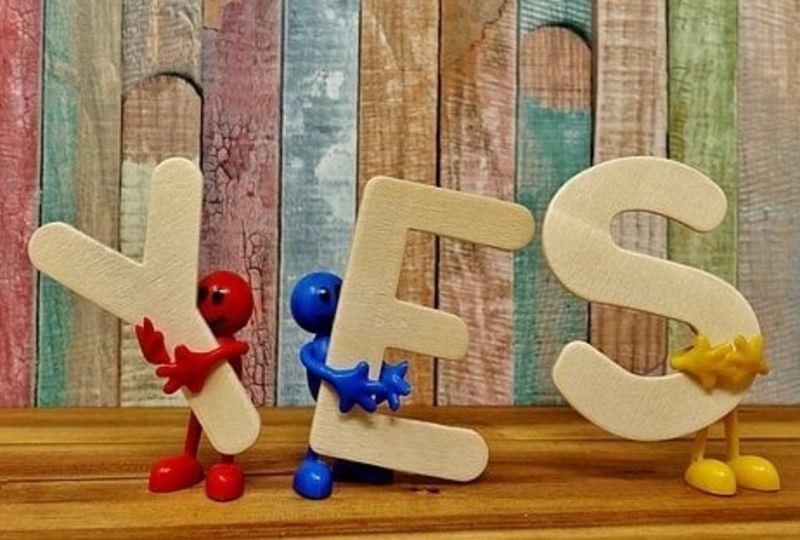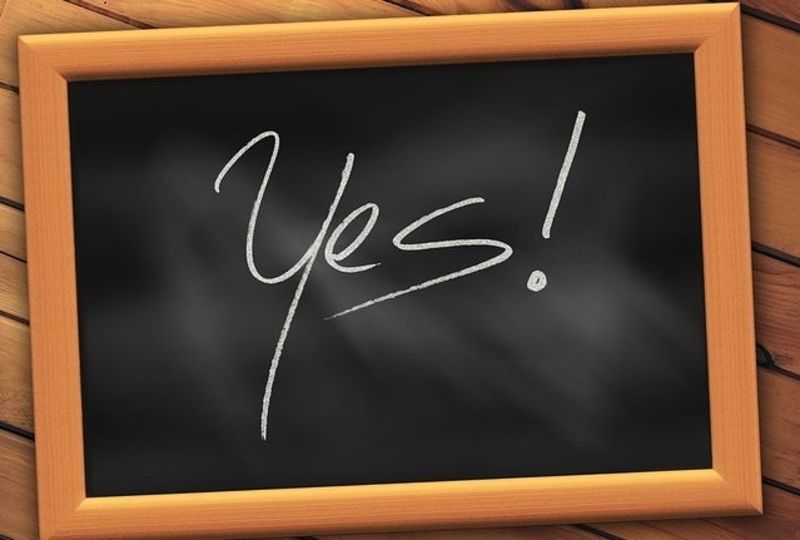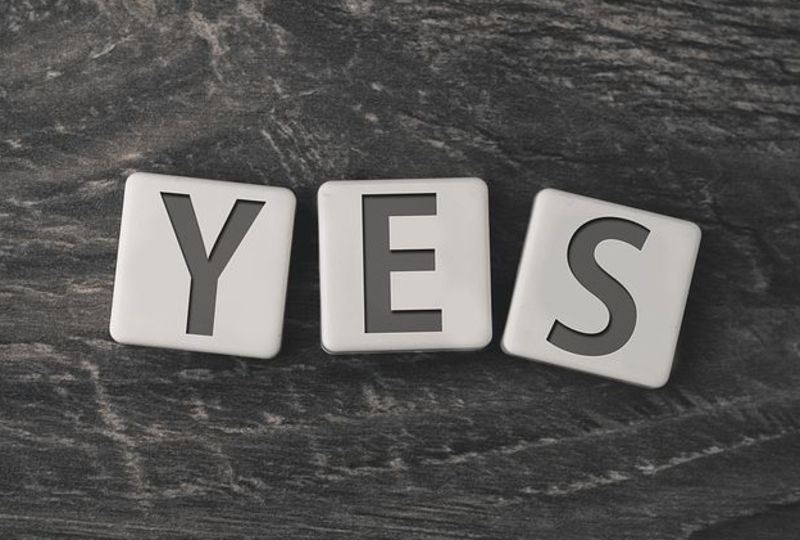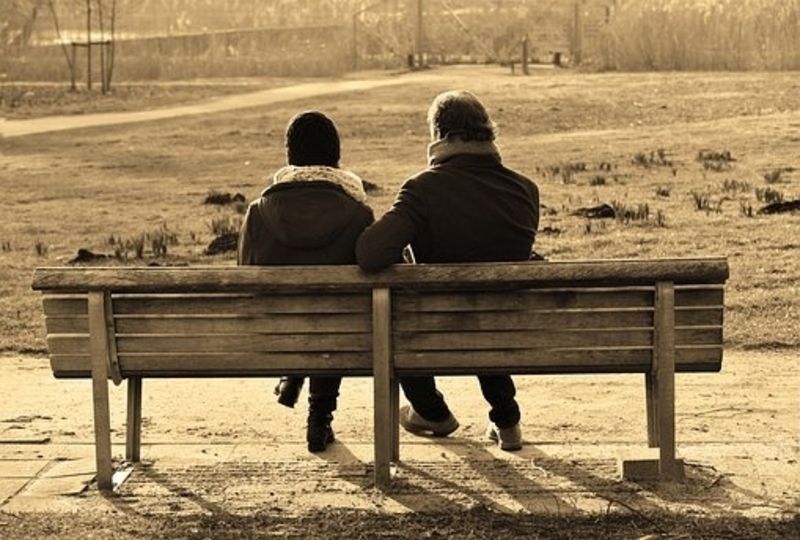Agreeing in German: 10 Ways to Say Yes

One of the best tips to learning any langage is to be positive and know how to agree. Every language offers a wide variety of ways to agree with someone, and saying "yes" to people is what will help you get more language partners and opportunities. With many different ways to say yes, perhaps we should think about it more as different ways to agree with another speaker.
Being agreeable is one of the easiest and biggest first steps you can take because it opens a world of possibilities. Agreeing with people can make it easier to start an actual conversation .
Learning German on a more natural level means going beyond the obvious "Ja." The question is what other ways are there to say yes? Fortunately, the answer is there are many ways to agree, and they are as nuanced as in English. Learning some of the many ways of saying yes can stimulate your brain, getting you to think of more words and ways to express yourself.
Here are ten other ways to agree that will help you start thinking beyond the familiar "Ja." And since "Ja" is a short version of "Jawohl," we aren't going to count that word either. That gives you two ways to agree - the informal "Ja" and formal "Jawohl" - even before you really get started.

10 Ways to Say Yes in German
Just like with English, saying "yes" is really about nuance. This article will provide that nuance so that you will know when to reply with something like "sure" or "Why not?"
1. Okay
This way of agreeing is kind of a cheat because it is about as English as terms come. However, English is one of the very few languages that has this term (very few languages have anything similar to the meaning of "Okay"). This means that it has been adopted by many other languages to express the specific meaning of this unique word.
The term has a very long and interesting history, but it is theorized that it came from the days of Morse Code. Instead of continually typing "all correct" or some variation of the term (they didn't have standardized spelling back in those days), it is thought that typists began to abbreviate the expression with "OK." From there, it became colloquial, and then a universal way of saying "yes," "alright," and "I understand."
You use it exactly the same way in German as you do in English. It's multifaceted, and isn't exactly the same as "yes." Still, it is a way of agreeing.
2. Das Klingt Gut
Most of us agree with a statement in a little more positive way than a simple "yes" or "ok." That's where "das klingt gut" comes into use. The direct translation is "that sounds good," and that is exactly how it is used in German. Yes, it is a phrase you probably already say, making it a very easy translation to use in German.
Like in English, saying "das klingt gut" in German is a positive way of affirming that you agree and like the idea or plan presented. If you would say "that sounds good" in English, you can simply replace it with the German phrase instead, and you will almost always be right in its use.
3. Kein Problem
This way of agreeing isn't exactly "yes," but it is definitely a way of confirming what someone has said. The direct translation is "no problem." Just like the previous two forms of agreeing, you use this form in exactly the same way between English and German. If you would normally respond with "no problem," you can easily use "kein problem" to express that sentiment in German.
Keep in mind that this is really a slang term in English. You would say, "That's not a problem" or "I don't have a problem with that" if you were speaking properly. It's the same in German, so you probably don't want to use this phrase in a more formal setting.

4. Sicher / Freliich
Both of these words have the same meaning of "sure!". It's a way to quickly let someone know that you agree or that you can fulfill a requested favor. You will probably hear "sicher!" a bit more often, but the two terms are pretty much interchangeable. Try changing it up a bit if you feel you rely on one of these words a little too much.
5. Also gut
Another way of informally agreeing with someone, this phrase means, "Ok, good." It's not something you would say to replace yes, more like a way to say that you are on the same page.
6. Gewiss
This is one of the few options on this page that has a much more similar meaning to "yes," but it isn't a direct replacement. Use this to mean "certainly" when you are talking with people. It has the same range of use, from agreeing to do something to agreeing with a point someone is making. Typically, it will follow a question.
7. Warum Nicht?
Definitely more of an informal way of speaking, this phrase is a more playful way of saying you're alright with something. It's a way of expressing that you are open to their suggestions or that you are game for something. You probably won't use this in the professional realm, but when you start getting a bit closer with someone, this can be a way of emphasizing that you are interested in their ideas.

8. Klar
A possible root for the debated origins of "okay," "klar" is a very quick way of agreeing. A rough translation is "of course." Do be careful with this word so that you don't come across as being flippant or rude. It lets your language partner know that you have no problem saying yes to whatever they are saying. You can also use it to say you are willing to do something for them.
9. Bestimmt
This term is a favorite with some people and it roughly means "for sure." It's another way of being very adamant in your agreement with what someone is saying.
10. Doch
This is the term that is entirely interchangeable with "yes" in an informal setting. Informally, you use this word for giving a "yes" answer to a question that is worded negatively. For example, if someone asks "Didn't you catch the bus?" you would respond, "Doch." If someone asks you, "You didn't go, did you?" answering "Doch" means that you did go.

Pay Attention to Keep Learning New Ways to Agree
With these new ways of saying yes, you can start putting them to good use, even if you aren't going to a German speaking country any time soon. There are a lot of ways to use these words or phrases or to hear them in use, as well as finding new ways to agree.
One of the ways to start practicing these ways of agreeing is to go on social media and start putting the new ways of agreeing to use. It provides a safer place to start using them with easy ways to be corrected.
By taking a more passive role, you can learn how people more naturally agree in German. When you are commuting, you can plug in to podcasts, audiobooks, and music to both be entertained and mentally engaged in learning. The best way to learn German is to actively engage, even if it is a passive engagement.
Whatever your preference, spending more time learning German will help you use it more naturally. Over time, it will start to become a bit easier as people will be more willing to talk to someone who is agreeable.
